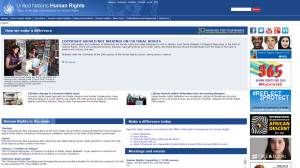Terms of Reference
Consultancy for the visioning exercise of the men’s forum and Steering Committee for the project
“Promoting Working with men and boys to end Violence against Women in the Middle East”
in Jordan, oPt and North Iraq
1. Programme background
The growing global debate on the role of men in promoting gender equality pursued Oxfam GB to explore this area, due to the tremendous work of the organization in promoting gender equality, in particular addressing the structural barriers to women’s development, in particular violence against women. Accordingly, since 2008 Oxfam started a regional programme with the aim of engaging men in ending violence against women. The key programme components included: 1) capacity building of women’s organizations that are engaged in ending VAW; either service providers for women’s survivors of violence or as actors in empowering women to speak up on violence; 2) research component that analysed masculinity; and 3) promoting the role of men as key actors in ending violence against women by establishing a men’s forum and launching White Ribbon Campaign. At the pilot phase 2008-2011, the programme was implemented in Lebanon, and leveraged the learning, in particular the capacity building component to other countries in the region including Jordan, Lebanon, Iraq, Egypt, Syria and Yemen. A men’s forum was established in Baalbeck, Lebanon conducting different awareness raising sessions at the community level. During the course of the pilot phase implementation, in order to promote the approach of working with men to end violence against women; Oxfam encouraged the partner in Lebanon engaged in the implementation to establish Steering Committee from various stakeholders. The final evaluation of the programme, informed the need for moving the Steering Committee mandate from being a project driven to encompass a group of stakeholders that are interested to work around the approach of working with men and boys to end violence against women.
Based on the success model of the pilot phase, in January 2011, Oxfam started the implementation of Phase II of the programme, in partnership with national CSOs in the region. Phase II is funded by the European Union (EU) for the period 2011-2013. The overall project objective is to contribute to the efforts of civil society organizations in the Middle East in countering gender stereotypes to combat the root causes of Violence against Women with the specific objective of improvement in the attitudes and practices of men and government policies to end VAW in the Middle East, specifically in Lebanon, Iraq, Jordan and Palestine. Major components of this project include the establishment of the men’s forum and the enhancement of the coordination and networking among organizations and relevant stakeholders through the formations of Steering Committee in each country where the programme is implemented.
In Lebanon, KAFA began to support community-based organisations to establish a men’s forum in Baalbek, a work that has been started in Lebanon during the pilot phase of the project of working with men and boys to EVAW back in 2009. During the first phase, Oxfam GB supported and funded activities at universities, among farmers, religious leaders and youth that focused on various interests of men in different groups, but also included violence against women. It is expected that 50 enlightened men from the four targeted countries will form the men’s forums and will deliver their priority action plan for change. Based on the lessons learned working with men’s forum inBaalbeck, there is a necessity to conduct a vision building exercise with the members of new forums in order to: Define the purpose and the mandate of the forum, which will result in production of ToRs for the forum with clearly defined roles and responsibilities; Establish transparent and accountable governance system; and Development of by-laws for the forum
Simultaneously, and in order to sustain the Steering Committee network, Oxfam believes that there is a need for a visioning exercise, similar to the one launched with the partner in Lebanon; among the Steering Committees formed in Jordan, Iraq and Palestine.
It is therefore, and based on the above, that Oxfam decided to recruit a consultant to support the men’s forum and the steering committees in Jordan, oPt and North Iraq to reflect on their major future role thru a visioning exercise.
2. Objective of the consultancy:
The overall objective of the consultancy is to explore the functions of the steering committees and the men’s forum in the three countries being established by partners and lead a process of a visioning exercise that would inform the mission and the entity of the men’s forum and steering committee in each country. This exercise will aim at sustaining the Steering Committees and the men’s forum Structures beyond the programme cycle.
3. Tasks to be performed:
● Review existing role of the men’s forum and the steering committee in Lebanon and its scope of work.
● Prepare the materials for the visioning exercise for the members of the men’s forum and the steering committee in Jordan, oPt and North Iraq including a clear understanding on the approach of working with men and boys.
● Conduct a two to three days visioning exercise in each of the targeted countries (Jordan, oPt and Iraq) including the development of the mandate of the men’s forum, their role, Action plan, criteria for joining the men’s forum, KPI,…
● Conduct a one day visioning exercise with the steering committee members in each of the targeted countries (Jordan, oPt and Iraq) including the development of the mandate of the steering committee, their role, …
● Provide an output report to Oxfam GB including a clear mandate of the men’s forum and the steering committees and clear recommendations.
4. Timeline:
The following table indicates approximate timings for the assessment to be completed.
| Action |
By When
|
Who
|
|
|
|
| Review of men’s forum activities and scope of work in Lebanon |
15 October 2012 |
Consultant |
| Preparation for the visioning exercise |
17 October 2012 |
Consultant |
| Review the materials with Consultant |
16 October 2012 |
Consultant, Oxfam GB |
| Visioning exercise with the men’s forum in Jordan |
21-22-23 October 2012 |
Consultant |
| Visioning exercise with the men’s forum in North Iraq |
25-26-27 October 2012 |
Consultant |
| Visioning exercise with the men’s forum in oPt |
29-30-31 October 2012 |
Consultant |
| Report submission to Oxfam GB with recommendations |
10 November 2012 |
Consultant |
|
|
|
5. Qualifications and required skills:
Oxfam is looking for consultants with strong presentation, analytical and facilitation skills to conduct the visioning exercise with the members of the men’s forum and the steering committee in each of the targeted countries (oPt, Jordan and North Iraq). The consultants should have the following skills and competencies:
● Demonstrable experience of facilitation skills.
● Experience in conducting visioning exercise.
● Strong background and expertise in Gender and Violence against Women issues.
● Strong Analytical and writing skills.
● Computer literate.
● Committed to deadlines.
● Ability to write concise, readable and analytical reports.
● Experience working in the Middle East and knowledge of each targeted country context.
● Excellent writing and verbal communication skills in Arabic.
6. Remuneration:
The remuneration is commensurate with skills and competences of the selected applicant/s. Oxfam will pay a total fee of 9,500 USD -11,000 USD for the overall assessment including all expenses (Travel, accommodation, transportation, consultancy fee, …) based on satisfactory completion of the job.
7. Applications
Applicants with the experience and skills described above are invited to submit the below:
1. CV including contactable three references.
2. A cover letter of no more than 2 pages introducing the consultant experience and how the skills and competencies described above are met, with concrete examples. Please also use this cover letter to indicate consultants’ availability at critical periods.
3. An outline of no more than 2 pages of the proposed process and key considerations.
4. A 1-page budget covering all major anticipated costs (Oxfam prefers to pay an agreed price for the totality of the work including the field trips to North Iraq)
5. One example of a previous similar task.
Applicants not conforming to this model may be rejected. Applicants should be emailed to rabisaad@oxfam.org.uk by October 10,2012.
8. Technical evaluation
The quality of each technical offer will be evaluated in accordance with the award criteria and the associated weighting as detailed in the evaluation grid below.
| No |
Criteria |
Max Score |
| 1 |
Methodology
– Marks will be awarded for clarity, credibility, innovation and “achievability” |
40 |
| 2 |
Quality of personnel/consultant
– Assessed against the skills, competencies and experience specified |
30 |
| 4 |
Commitment to availability in the critical periods. |
10 |
| 5
|
Commercial
– Fees commensurate with skills/experience
– Quoted expenses reasonable/realistic to deliver outputs
– Terms and conditions |
20 |
| Total |
|
100 |
Read Full Post »


















